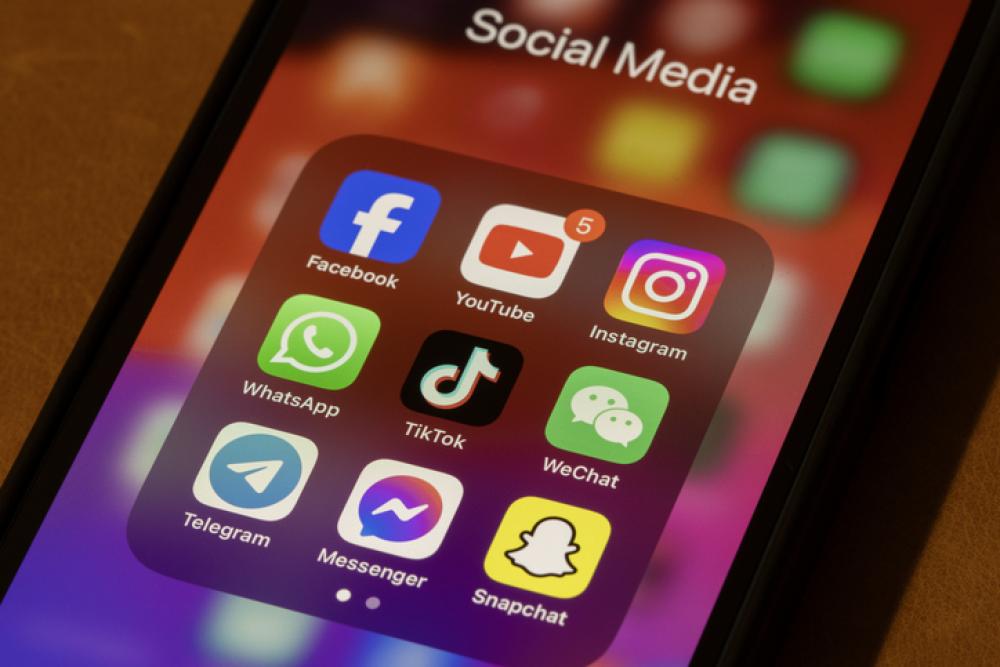Nebraska became the latest state this week to restrict students' use of cellphones during school hours (see 2501130041). LB-140, which Gov. Jim Pillen (R) signed Tuesday, will go into effect during the 2025-26 school year. It provides certain exemptions for students with individualized education plans, emergencies and educational purposes. The law also clarifies that the restriction doesn't authorize monitoring, collecting or assessing information on a device that isn't owned or provided by a school district. "The research is clear about the detriments from overexposure to social media and the way Big Tech works to keep kids online and coming back for more," Pillen said.
FCC Commissioner Anna Gomez said Friday at a policy forum that removing all minority-party commissioners would weaken the agency’s ability to defend its rules in court. “The Communications Act doesn't just require three commissioners for quorum,” she told the Competitive Enterprise Institute and Tech Freedom audience. “It requires that there will be one member of a minority party, and that, in and of itself, could weaken whatever defense that a future FCC may have if there is no such single minority party member.” The agency also wouldn’t be able to present evidence that it had considered dissenting opinions, making it harder for a one-party FCC to present itself as an expert agency, said Gomez and Tech Freedom President Berin Szoka.
Vice President JD Vance on Tuesday amplified a social media post from Gavin Wax, FCC Commissioner Nathan Simington’s chief of staff, on improving American manufacturing and competing with China. “Important point by Gavin,” Vance wrote in support of Wax's post about making American-made tech products competitive globally. Vance chiming in to support Wax is the latest example of prominent figures connected with President Donald Trump’s administration weighing in on issues raised by Simington and Wax since the latter joined Simington’s staff late last month. Since then, the two have authored a string of co-bylined articles on mostly FCC-centric topics that nevertheless are drawing attention from powerful Republicans. Trump himself reposted Simington and Wax’s article on broadcasting network affiliate fees (see 2505020066), and Simington recently appeared on the shows of former lawmaker Matt Gaetz and former Trump strategist Steve Bannon to discuss his articles with Wax.
Sen. Jerry Moran of Kansas and 21 other Republican senators are urging the FCC to “modernize [its] broadcast ownership rules to enable broadcasters to compete with today's media giants.” Broadcasters doubled down in late April on calls for station ownership deregulation as part of the FCC’s “Delete” docket (see 2504290054).
New York schools will implement a "bell-to-bell" device-free policy for students during the 2025-26 school year, Gov. Kathy Hochul (D) announced Tuesday. The policy was part of an agreement Hochul and legislative leaders reached last week on the FY26 state budget. The budget includes $13.5 million for schools that need help buying storage solutions for devices. “New York was the first state to target addictive social media feeds, and now we’re the largest state to restrict smartphones in schools throughout the entire school day,” Hochul said.
A proposal from FCC Commissioner Nathan Simington to fight “fake news” by capping fees that broadcast affiliates pay networks could include provisions protecting Fox, broadcast and FCC officials told us. Simington described the idea in a Thursday op-ed, co-written with Gavin Wax, his new chief of staff, and published in The National Pulse. President Donald Trump reposted the proposal Friday morning on Truth Social.
FCC Chairman Brendan Carr’s statements and actions as head of the agency run exactly counter to his prior positions as a commissioner, said the Foundation for Individual Rights and Expression’s Robert Corn-Revere in an article Wednesday in The Dispatch. Corn-Revere served as chief counsel to former FCC Commissioner James Quello.
The House voted 409-2 Monday night to approve the Senate-passed Tools to Address Known Exploitation by Immobilizing Technological Deepfakes on Websites and Networks Act (S-146), which President Donald Trump is likely to sign into law. In addition, the House cleared five other tech and telecom bills Monday night on voice votes: the Removing Our Unsecure Technologies to Ensure Reliability and Security Act (HR-866), Foreign Adversary Communications Transparency Act (HR-906), Rural Broadband Protection Act (HR-2399), Future Uses of Technology Upholding Reliable and Enhanced Networks Act (HR-2449) and the Secure Space Act (HR-2458). The chamber earlier Monday passed two other measures (see 2504280055): the Securing Semiconductor Supply Chains Act (HR-2480) and NTIA Reauthorization Act (HR-2482).
Broadcasters doubled down on calls for station ownership deregulation in reply comments filed by this week's deadline in the “Delete” docket (see also 2504290038), while public interest groups pushed back and cautioned the FCC not to skip required procedures in a rush to eliminate rules. Nexstar said that if the current ownership rules are retained, they will “doom television broadcasting.”
FCC Commissioner Anna Gomez condemned the agency’s threats against broadcast networks and warned that a loss of its independence could hurt internationally. Gomez delivered remarks during a Center for Democracy & Technology event Thursday in Washington. It was the first stop on what Gomez called a “1st Amendment Tour” in a release earlier this week. “I'm embarking on a tour to talk about this administration's efforts of censor and control, because we need people to understand what's happening, and we need them to speak out,” she said Thursday. “We are in an alarming moment, and I am not someone who is generally alarmist.”
